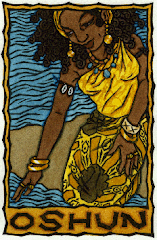By Barbara Ellen
The Observer
Does "on the ground female human rights worker" equate with "slut" these days? Are they perceived as wandering around war zones in cocktail dresses slashed to the thigh, hungry for the next thrill, perhaps a hunky military man to devour, humming the old toe-tapper I Love a Man in Uniform? Or could it be possible that these women pour all their passion and intensity into their jobs?
I only ask because of the curious case of Rachel Reid, a researcher for Human Rights Watch in Afghanistan. Last week, it emerged that a senior army officer, Colonel Owen McNally, had been arrested under the Official Secrets Act for allegedly passing classified information to a human rights worker. Unnamed sources were quick to inform the media that McNally was known to be "close" to Reid, who had divulged the secrets after she "befriended him".
Writing in response, Reid says that, far from being "close" to McNally, she met him twice professionally at the military HQ in Kabul to discuss civilian casualties. (Interestingly, Reid had angered Nato by pointing out that these deaths had tripled between 2006-7.)
Now Reid is horrified that her reputation has been dragged through the mud when she is living in a country "where a woman's reputation can mean her life". She is devastated by the "vicious slur" leaked to the media, saying: "They knew exactly what impression they were creating." Quite. And is anyone else getting deja vu?
As McNally's investigation is still going on, the full facts have yet to emerge. However, to me, this seems eerily reminiscent of Andy Burnham's description of MP David Davies and Liberty's Shami Chakrabarti's "late-night, hand-wringing, heart-melting phone calls" last year.
Intended or not, the impression given was that Chakrabarti and Davies were steaming up Westminster's windows about more than the 42-day detention period. Briefly but indelibly, Chakrabati was no longer just a human rights professional, she was a femme fatale, pouting and wriggling through the corridors of power.
Now here we have another woman working in human rights and more whispers about how she and a man were "close". One wonders how, in 2009, that it can still be the case that the quickest, most effective way to undermine a woman, professionally and personally, is to imply she's "using her sexuality" to get information.
Men are being targeted too, but it is still much more routine for a woman to be sexually slurred. Andrew Gilligan was never accused of being "close" to anyone during the sexed-up dossier episode. "Close" is unlikely to be perceived as a short cut to destroying a male reputation. By contrast, "close" is dangerous for a woman. Some might say, what of it? No one said Reid was having an affair. "Close" could mean anything - platonic friendship, professional rapport, a meeting of minds. Baloney. "Close" here is as loaded as a revolver. A euphemism for sex or at least sexual tension. In this context, "Close" could be a movie starring Angelina Jolie and Javier Bardem. I can see the tag-line now: "Their passion defied Nato!"
This is why Reid was devastated by "close". She would have realised in an instant the impact of the sudden appearance of her sexuality, barging into her professional life like some drunk through the saloon doors in a budget western. How quickly it would undermine her professional persona. Perhaps even put her life at risk.
From her written response it certainly comes across that any emotional involvement Reid feels is towards her work. That her only "crime" was that she took her job seriously, and is attractive with long hair. Only time will tell if the rest is just chauvinistic graffiti, a sneaky way of spraying "slag" across a global wall.






No comments:
Post a Comment